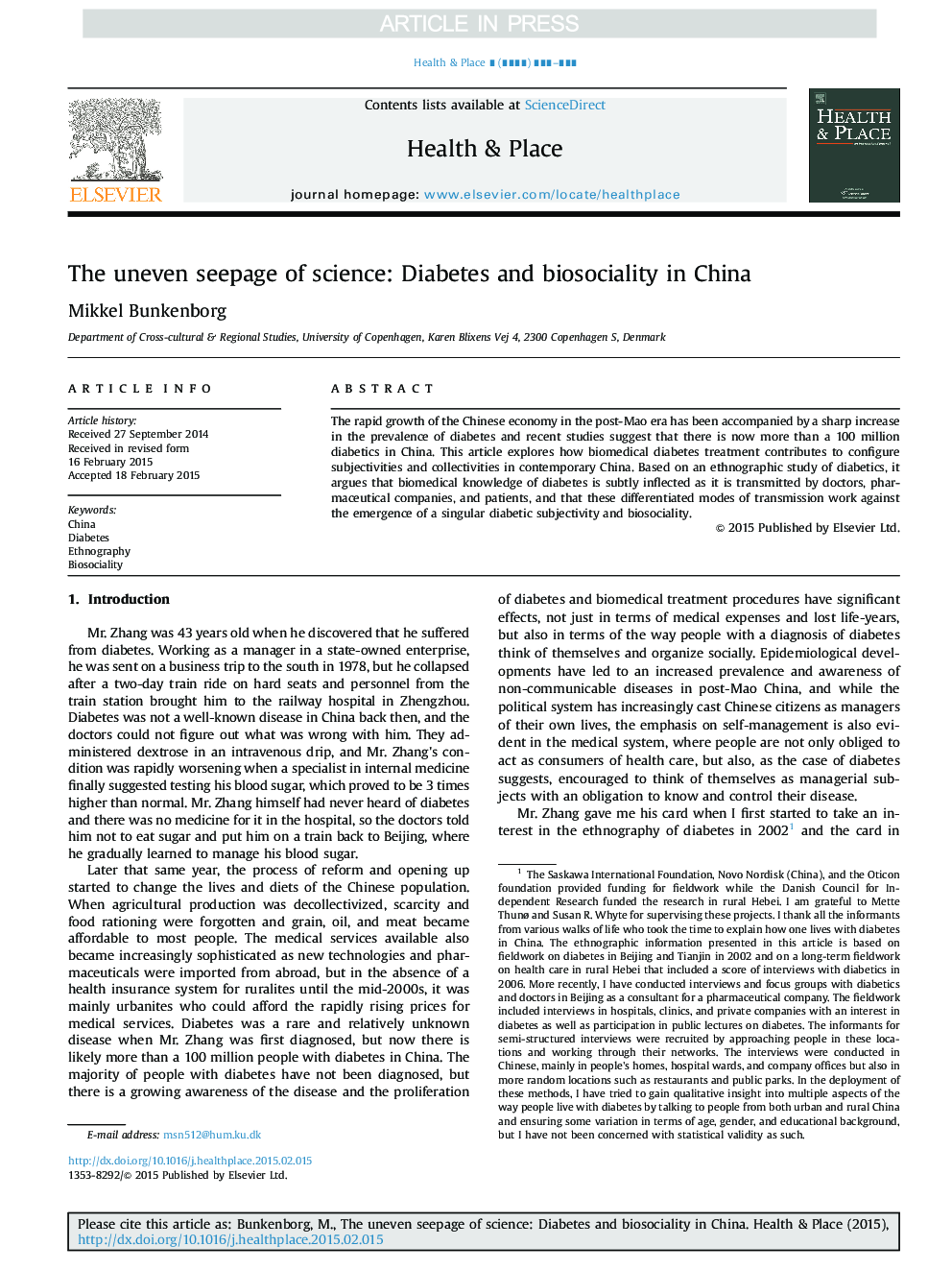| Article ID | Journal | Published Year | Pages | File Type |
|---|---|---|---|---|
| 7457339 | Health & Place | 2016 | 7 Pages |
Abstract
The rapid growth of the Chinese economy in the post-Mao era has been accompanied by a sharp increase in the prevalence of diabetes and recent studies suggest that there is now more than a 100 million diabetics in China. This article explores how biomedical diabetes treatment contributes to configure subjectivities and collectivities in contemporary China. Based on an ethnographic study of diabetics, it argues that biomedical knowledge of diabetes is subtly inflected as it is transmitted by doctors, pharmaceutical companies, and patients, and that these differentiated modes of transmission work against the emergence of a singular diabetic subjectivity and biosociality.
Keywords
Related Topics
Health Sciences
Medicine and Dentistry
Public Health and Health Policy
Authors
Mikkel Bunkenborg,
